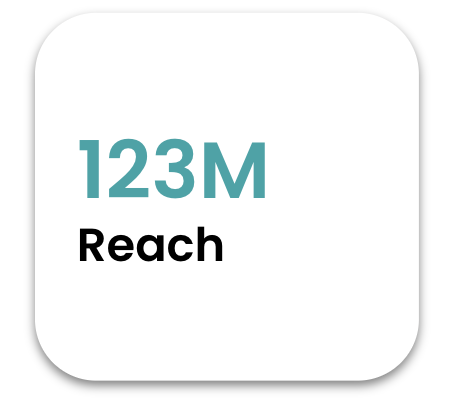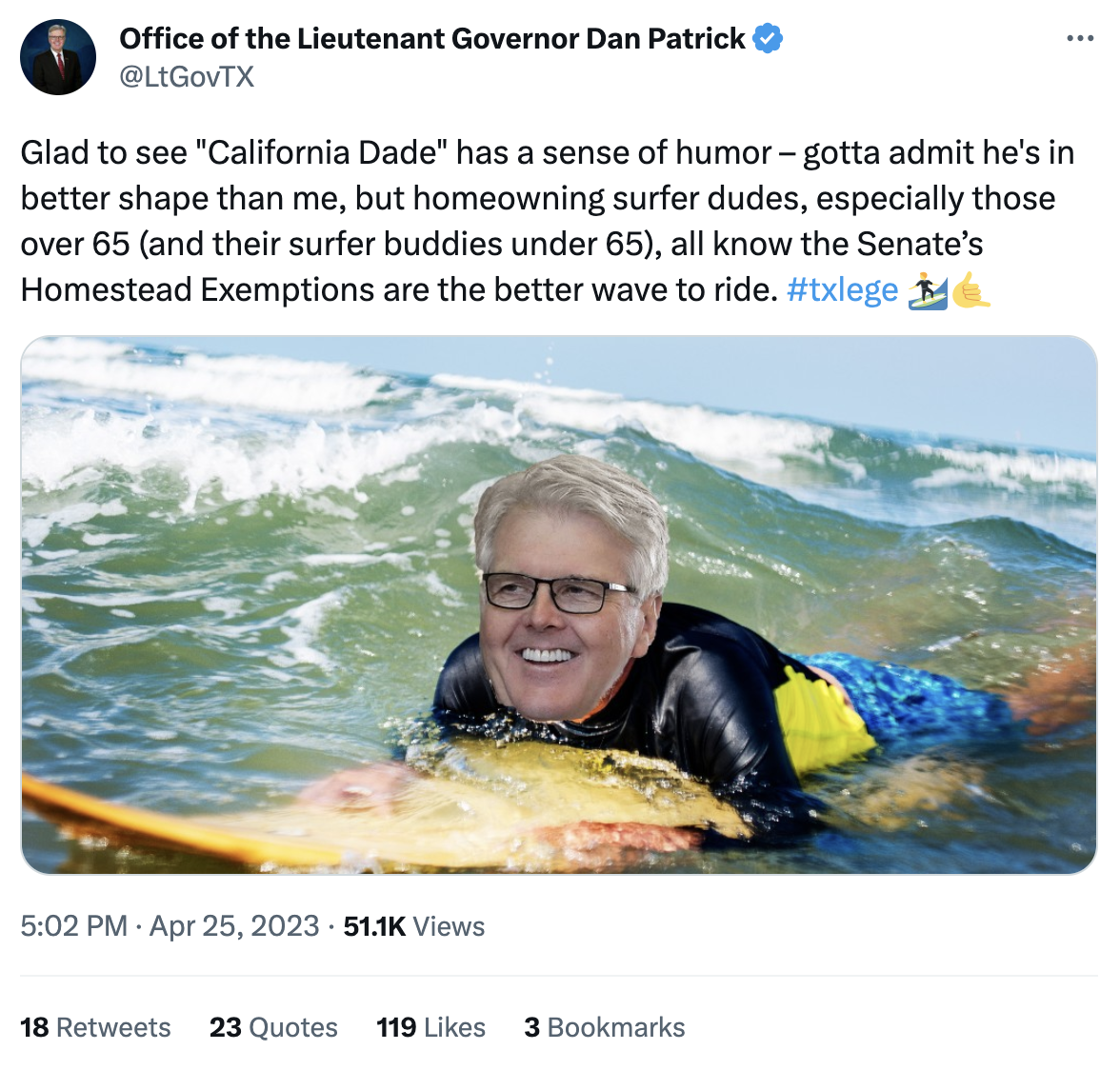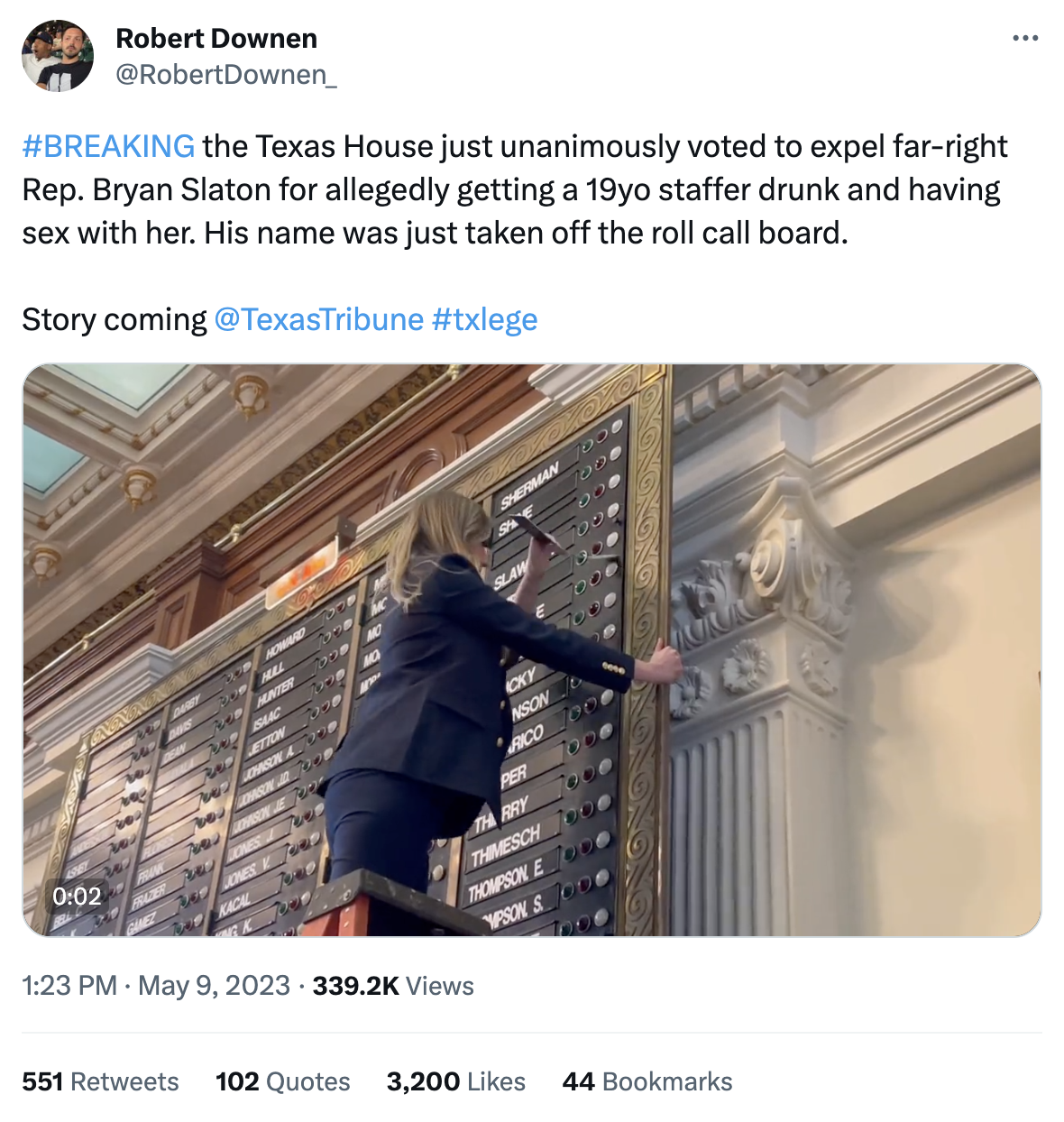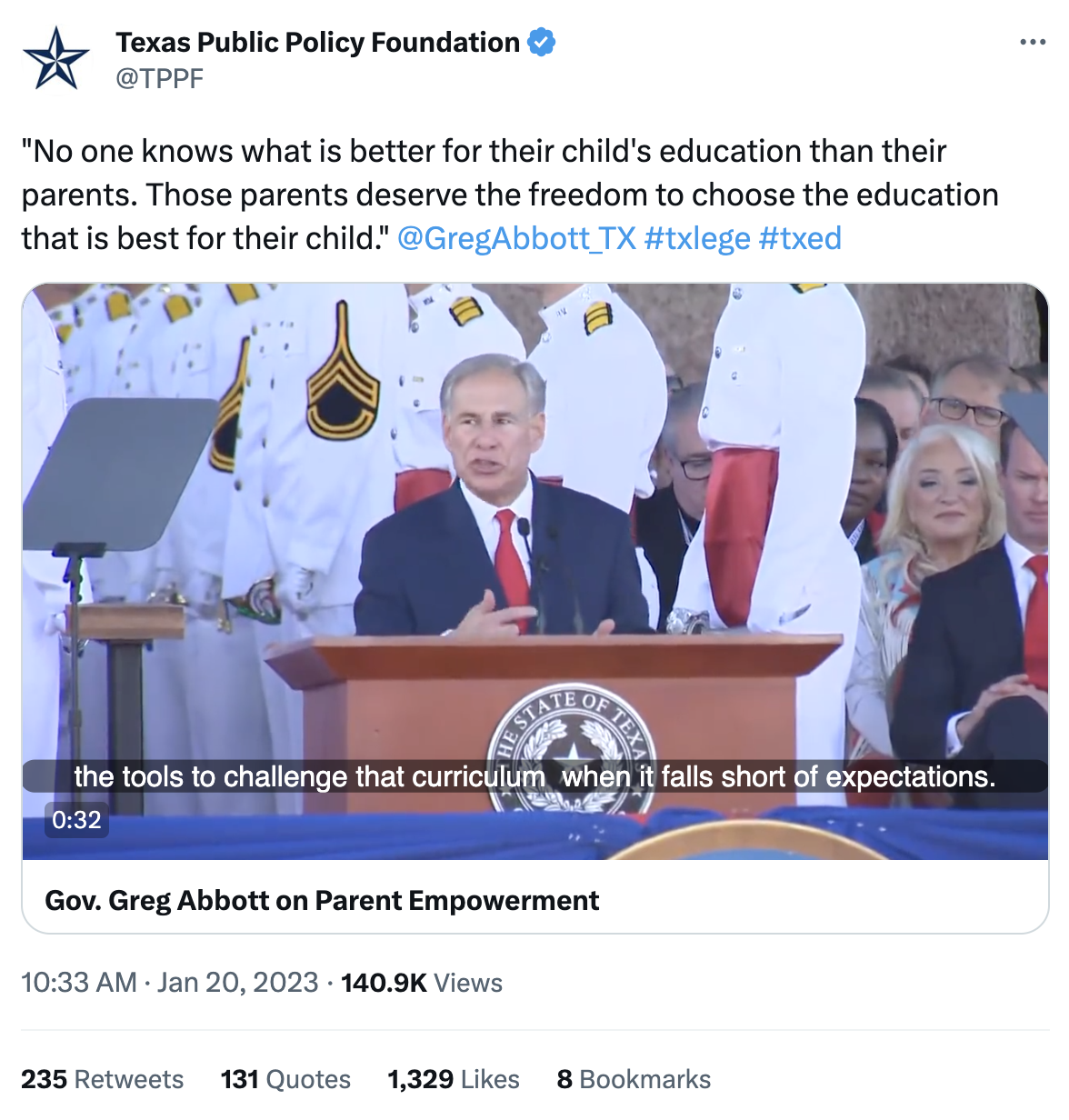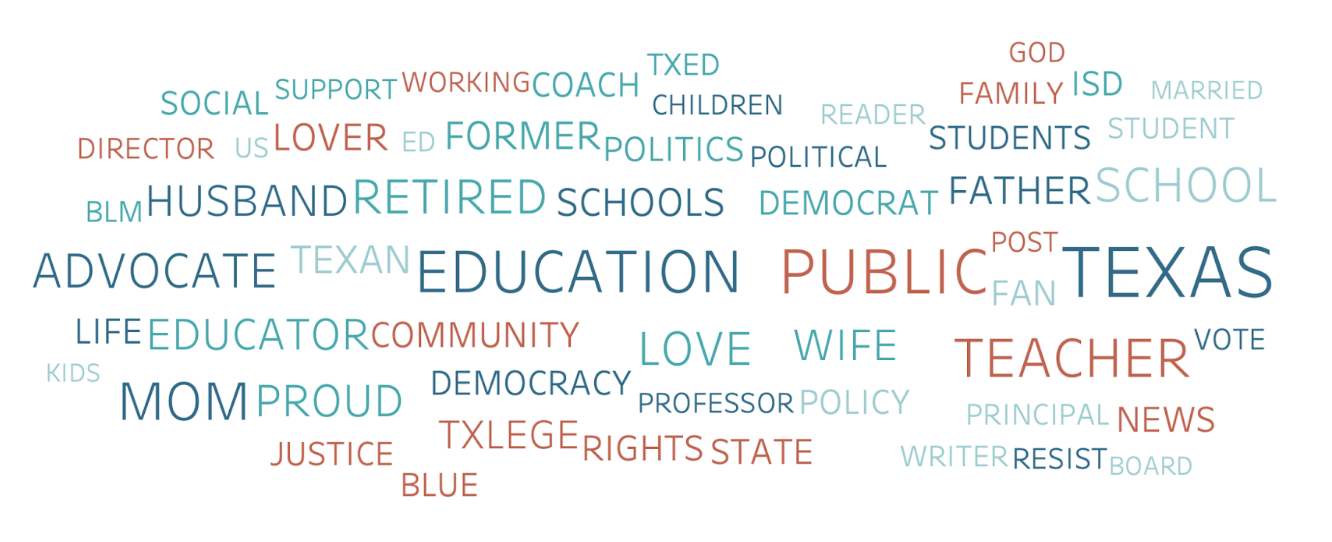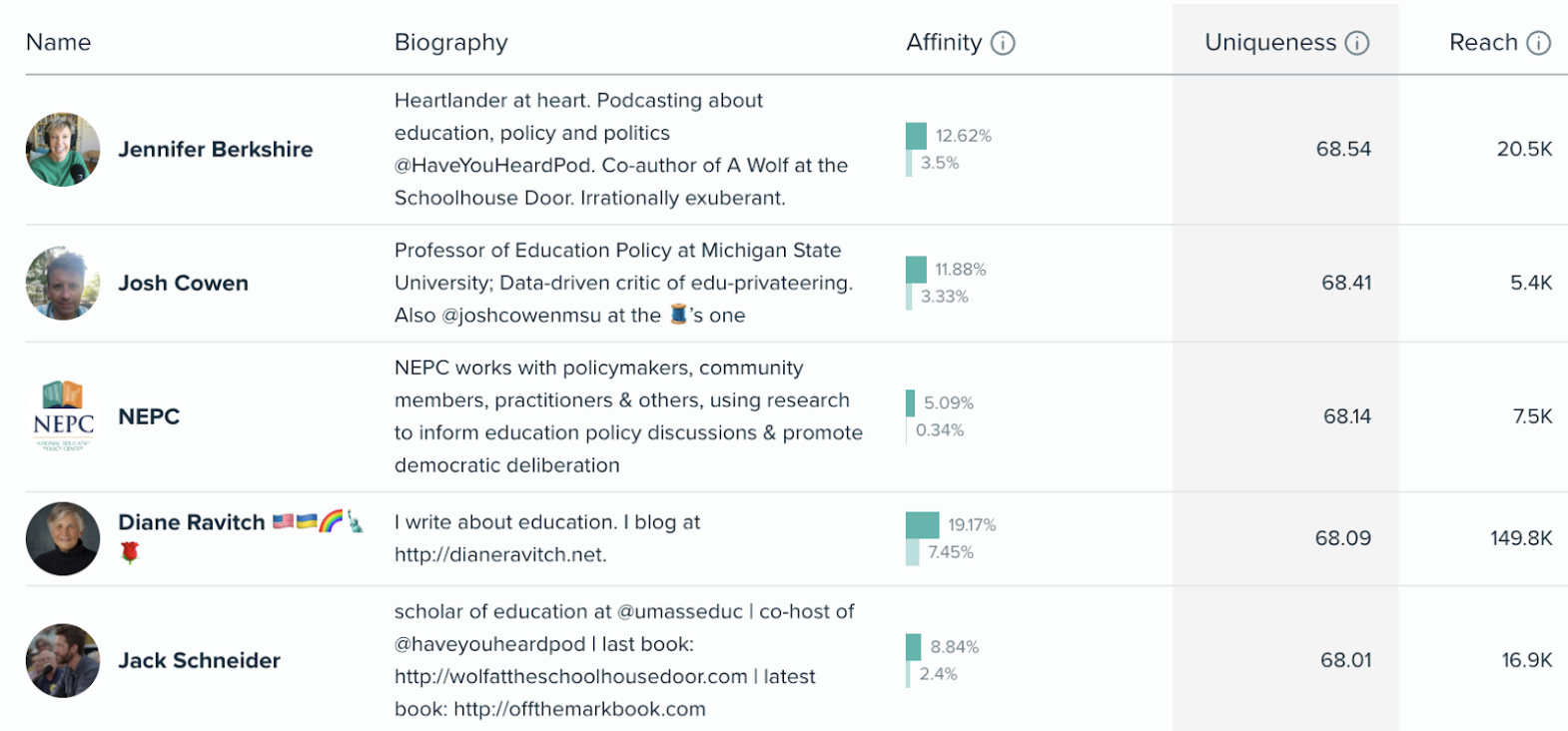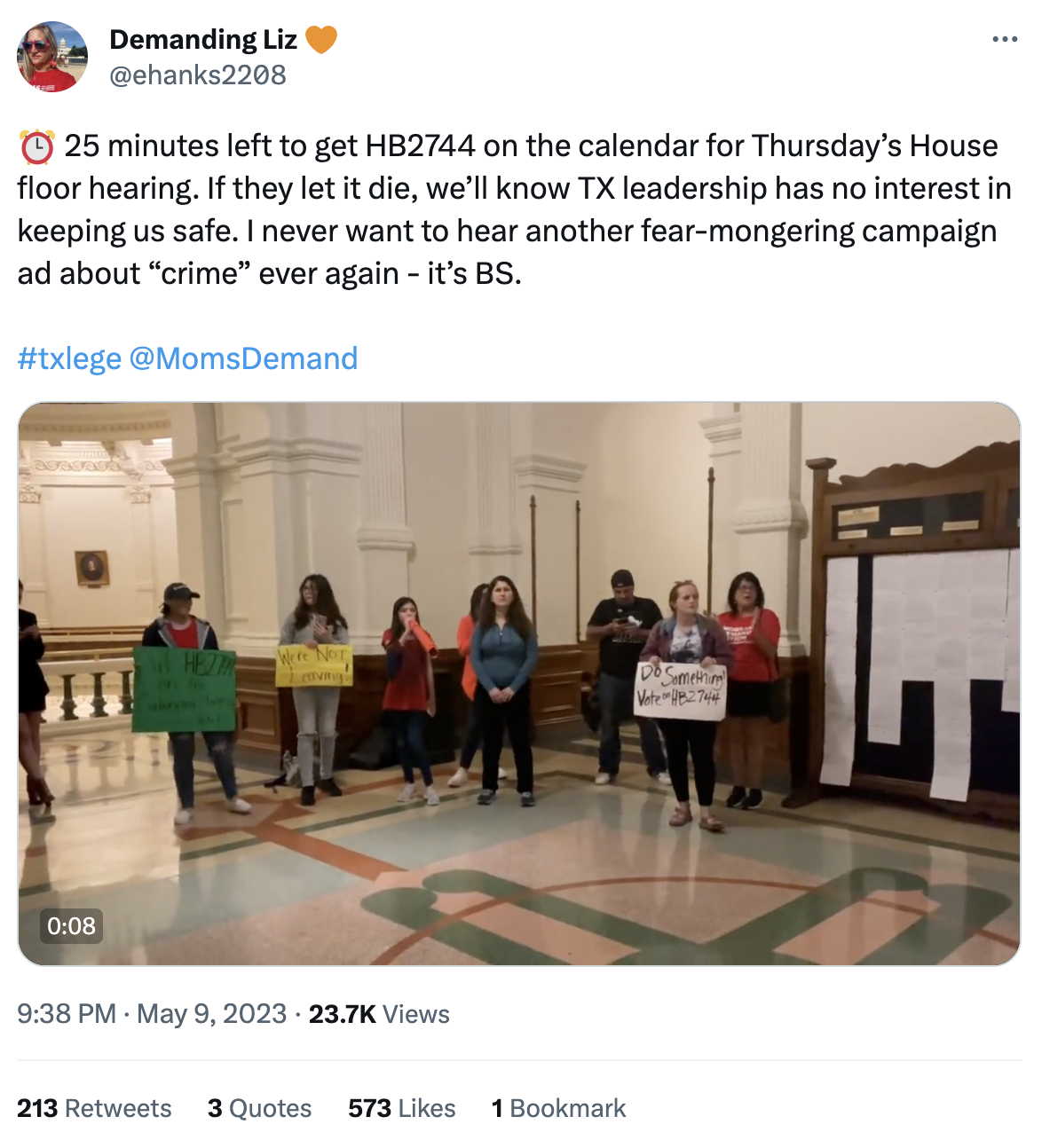#TXLEGE GETS BIGGER
Analysis of the online conversation during the 88th Texas Legislative Session

INTRO
The 88th Texas Legislative Session was one of the most unique and controversial in decades.
Marked by unprecedented upheaval at the highest levels and unfinished business on property tax reform and public education - all underscored by a historic budget surplus, the 88th Texas Legislative Session generated a historic amount of social media activity.
As has become customary in recent sessions, those interested in the goings-on at the lege, from reporters and politicos to constituents and out-of-state spectators, relied heavily on the social media activity of officials and other stakeholders to follow the 140-day legislative process.
The following Digital Advance analysis highlights some of the social media trends we saw in the 88th Texas Legislative Session. Our analysis captures posts:
Dates: January 10 - May 29, 2023 (regular legislative session only)
Channels: Twitter
Content: Posts must include #TxLege
Geography: Posts not limited to Texas

SESSION THEMES
Unfinished Business
Following decisive electoral wins in November, Republican leaders entered the session in January determined to deliver on key campaign promises. As the session progressed, obstacles and distractions took center stage, prompting House and Senate leaders to leverage Twitter, #TxLege’s mainstage, to make their case.
As important legislative deadlines loomed, Lieutenant Governor Patrick referred to Speaker Phelan as “California Dade” in a televised interview discussion on property taxes. This kicked off a spirited online debate as the two chambers sought to assert authority on their preferred solutions to Texans’ rising property taxes.
Historic Upheaval
In the final weeks of session, two political scandals diverted time and attention from negotiations over property tax relief and school finance, both priorities of Governor Abbott and Lt. Governor Patrick.
The House voted on May 9 to expel Representative Bryan Slaton, marking the chamber's first expulsion since 1927. Then, with two days until Sine Die and no agreement on property taxes or school finance, the Texas House took another historic vote to impeach Attorney General Ken Paxton. As news of the impeachment broke, the Paxton’s name trended on Twitter for more than five hours.
Unprecedented Surplus
As the 88th Legislative Session gaveled in, the state’s extraordinary $33 billion budget surplus created widespread funding expectations. Amid the nearly 18,000 tweets on the topic, calls to use the surplus to pay down property taxes and increase public education funding saw some of the highest engagement.

TXLEGE ESSENTIALS
TXLEGE ON TWITTER
The #TxLege hashtag continues to be the most widely used insignia of news and gossip under the Pink Dome. We tracked an eye-popping 1.2 million tweets that included the #TxLege hashtag during the 88th session - an incremental increase from past legislative sessions as more legislators, stakeholders, and influencers turned to social media to amplify their stance on various policies.
TXLEGE: LEGISLATORS
Filter to see individual Legislators content using the side bar.
96% of Texas House, Senate, and statewide elected officials are active on Twitter today. During the 88th Legislative Session, these 189 individuals generated a total of 33,000 tweets - that’s an average of 193 tweets/day!
TXLEGE x GENERAL PUBLIC
While many important conversations took place about a variety of topics, D|A chose to focus our analysis on the two issues that saw the most twitter activity: education and guns. Together, policy conversations around these two issues comprised about 70% of tweets using the #TxLege hashtag.
Tweets about education - a broad policy topic that encompasses subjects like public school finance and teacher pay while also touching other areas such as LGBTQ+ issues and property taxes - saw more than twice as many #TxLege tweets as any other topic. Tweets about guns saw the second highest number of tweets - most related to the 2022 Uvalde tragedy, as well as the mass shootings in Allen and Cleveland that took place relatively late in the session.
Trending Topics
Top Hashtags
Most Used Words
Tweet Timeline
The volume of tweets increased dramatically toward the end of session as coverage at the Capitol intensified around a number of major news stories:
May 2 - The LGBTQ+ Capitol gallery protest
May 6 - The Allen outlet mall shooting
May 8 - Resignation and subsequent expulsion of Bryan Slaton + attempts to raise the age to purchase AR-style weapons
May 12 - SB14 banning transition-related care for minors
May 24-27 - Ken Paxton impeachment + vouchers
#TxLege Communities
The chart above displays the various types on online communities using the #TxLege hashtag. Given the large presence of angst and activism around gun safety, public education funding, and LGBTQ issues, left-leaning audiences outnumbered right-leaning audiences in the below community map.

TXLEGE TRENDS
TRENDING TOPIC #1: EDUCATION
The push for school vouchers remains a top point of conversation in education policy. This session saw a significant amount of speculation over how the Legislature would address concerns about school curriculum, teacher pay, and the state’s basic allotment appropriation. At the same time, the push for school vouchers - and their resistance from rural and inner city stakeholders - reached a fever pitch.
Voucher Opponents
Proponents Continue Push to Rebrand ”Vouchers”
Most of the online conversation about education centered around the debate over whether Texas should allow public dollars to pay for students to attend private schools. In recent years, those who support the use of public dollars for private education - traditionally known as school vouchers - have begun referring to the concept in other terms, including school choice, education savings accounts, and educational freedom. While efforts to align the issue with the broader parental choice debate gained some traction in online conversations, the Legislature appeared unmoved on the issue and the public was twice as likely to use the phrase voucher over school choice in their posts.
General Public Issue Framing
Voucher Supporters
Legislator Issue Framing
Twitter bios can give insights into how people view themselves. A scan of Twitter bio descriptors among those using “vouchers” versus “school choice” in their posts highlight ideological differences among people discussing the issue.
How people using “Voucher” describe themselves in their Twitter bios:
How people using “School Choice” describe themselves in their Twitter bios:
Advocates, elected officials, and other stakeholders from both sides of the voucher debate took to Twitter to debate the pros and cons of the issue. We took a closer look at the way the informal online coalitions interacted around the debate over vouchers during the 88th session. In doing so, we identified cohorts from within and outside of Texas engaged in the voucher conversation.
Communities talking about Vouchers & School Choice:
We looked at the accounts most followed by members of each of the two education advocate segments to understand more about the positions of those most engaged in the conversation. The lists below show the type of accounts that each side engages with online. Both lists include several accounts that support keeping public dollars exclusively in public schools.
Most followed accounts by the Texas Education Supporters audience:
Most followed handles by the National Education Supporters audience:
TRENDING TOPIC #2: GUNS
The gun policy conversation during the 88th Legislative Session was driven by supporters of tightening firearm regulations. The relative messaging deficit among conservatives in favor of fewer/less restrictive gun laws could be partially attributable to Republicans’ 2021 legislative successes, perhaps leaving few new laws to be desired or discussed. Two new mass shootings in Cleveland and Allen added to a sense of urgency among the fervor already in existence after last spring’s tragedy in Uvalde.
Most common words used in tweets about “guns” & '#txlege:

TIK TOK: THE BREAKOUT STAR
Twitter remains the dominant space for legislative chatter, but as the digital sphere shifts, there’s another platform worth paying attention to.
TikTok might be banned on Texas government networks, but that doesn’t take away its distinct potential for reaching existing and new political audiences.
With over 66 million views under the #TxLege hashtag on the app, TikTok has proved to be a valuable space to explore messaging from political influencers and communicators.

CONCLUSION
Digital Roadmap Through The Chaos
It’s no longer enough to think of social media platforms as simply a front row seat to the policy debates and conversations trending in the halls of power. Social media is an indispensable tool for elected leaders, think tanks, and advocacy efforts. While it used to be a supplemental tool to transmit a policy position, social media is now a mainstay for advocacy and communications operations. The sheer size of the conversation can be daunting: thousands of posts to sift through and digest - often too much content for most ground-level advocates and coalitions to read, much less understand and act on.
Digital Advance specializes in analyzing large digital data sets and providing key context and strategic direction. Our decades of experience working at the intersection of public relations and policy combined with our proprietary digital mapping technology position our clients for success with insightful campaign strategies and proven messages that reach key influencers, opinion leaders, and decision makers.

About the Firm
Digital Advance (D|A) operates at the intersection of public affairs, digital media, and traditional communications to help clients solve problems and achieve goals around complex policy issues. D|A uses proprietary digital technology and draws on decades of experience in strategic communications and media, community and public relations to:
Identify the most important influencers and persuasive messages;
Micro-target communications to key people and communities;
Create strategic plans tailored to clients’ specific needs; and
Establish benchmarks to track success.
Our clients include a range of corporations, associations, and public entities operating locally, statewide, and nationally. We work with them to establish goals, define wins, provide critical research and intelligence, and develop and execute winning campaigns and initiatives.




